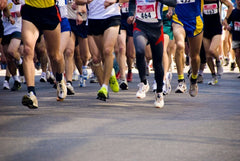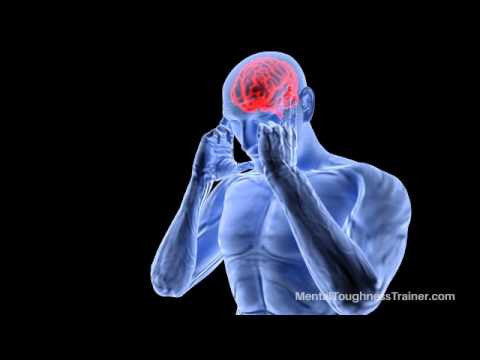Why is psychology important in sport? Why train your mind as well as your body? Why does it matter to you?
 Your mind is a wonderful thing. It is often the deciding component in a competition – who wants it more. Let's imagine you and one, two, possibly threeothers are at the end of a 10km race run. You have maybe 400m left, it is raining and windy. You have pushed hard to stick with the others, side by side you come into the last 300m. Your legs are heavy, your arms ache, and the burning sensation has been there for the past 2000m. Your body is screaming for you to stop, what happens next?
Your mind is a wonderful thing. It is often the deciding component in a competition – who wants it more. Let's imagine you and one, two, possibly threeothers are at the end of a 10km race run. You have maybe 400m left, it is raining and windy. You have pushed hard to stick with the others, side by side you come into the last 300m. Your legs are heavy, your arms ache, and the burning sensation has been there for the past 2000m. Your body is screaming for you to stop, what happens next?
To me, there are two scenarios worth considering:
- The opposition begins to move forward; you can't force your body to move any faster so you let them go.
- The opposition begins to move forward; you go with them.
Other scenarios may occur, but for now let's focus on these two.
Which would happen if it were you? Honestly? Are you mentally tough enough to force your body beyond its apparent limits? You might be. What if you're not? What do you do then? You train, both physically and mentally. It doesn't happen overnight, but you can notice changes quickly.
So what does that mean to you? For recreational athletes or the general public, pushing yourself in training is where you'll get the best benefits. If you're unable to do that, then you will be limited in how quickly you can progress. Athletes, this is one of the most important aspects of your training. If you can't push yourself in training or a race, then you won't be winning, it's as simple as that.
Mental training can be done in various ways; it is finding what works best for you that is the key. Here are a few methods you can try:
Imagery
 Visualise how you want the next performance to go. Replicate a previous best or visualise a perfect performance. In simple terms, imagine what the next performance should be like prior to doing it. This will help to refocus, run through how to complete the next performance, what should be happening when, how it should feel.
Visualise how you want the next performance to go. Replicate a previous best or visualise a perfect performance. In simple terms, imagine what the next performance should be like prior to doing it. This will help to refocus, run through how to complete the next performance, what should be happening when, how it should feel.
Positive self-talk
This is simply telling yourself you can. Negative thoughts are when people begin to give up "it hurts" - "I can't do this anymore" – "I am too tired" – "I'll never beat them". Why not try positive comments such as "I can do this" – "I will go faster" – "I am not tired yet!" – "I will win", this can have tremendous effects on performance in both training and competition!
Meditation
 One of the most under-utilised training methods in sport is Meditation! It takes practice; unlike the first two it does not happen immediately to see the results. When performed, the best way is to follow the normal instructions for transcendental meditation, this is the type of meditation I have seen most often in the literature. To do it: Sit in a comfortable position, no distractions, eyes closed, relax. There are guides on YouTube that can help you through it; this is how I personally feel is the best way to go about it.
One of the most under-utilised training methods in sport is Meditation! It takes practice; unlike the first two it does not happen immediately to see the results. When performed, the best way is to follow the normal instructions for transcendental meditation, this is the type of meditation I have seen most often in the literature. To do it: Sit in a comfortable position, no distractions, eyes closed, relax. There are guides on YouTube that can help you through it; this is how I personally feel is the best way to go about it.
So there you have it, there are various aspects of performance that will benefit from psychological training. Psychology is important to all athletes, both recreational and performance. There are a few methods for you to test out too! Keep us updated on how it goes, how they work for you and what benefits you notice!
